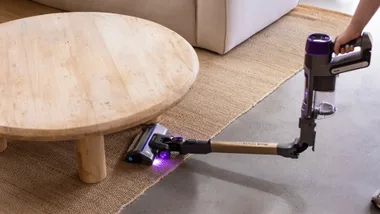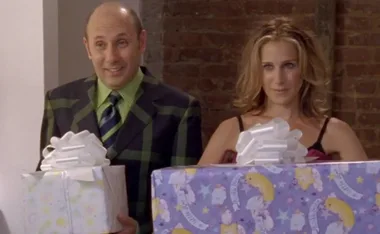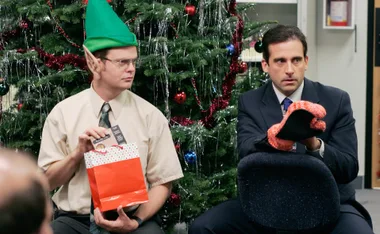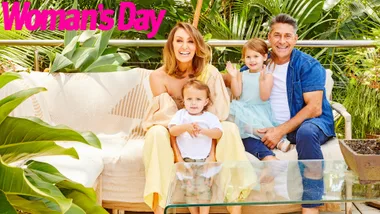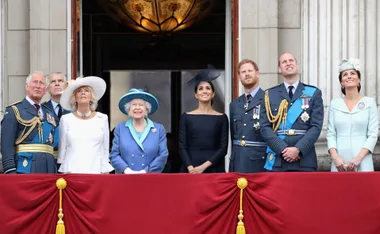The funeral is not a problem. Maureen simply reacts to other peoples’ distress, which is just another form of obedience after all. Tea and biscuits later is a little harder to manage. A smile insists on creeping into her mind, so she keeps her eyes lowered and speaks only in monosyllables. No one notices. They all think she’s half-mad, or stupid, or both. Everyone’s eyes are on Rita, waiting for her to give way to a distasteful show of grief. After all, Rita is David’s mistress. Was David’s mistress.
The day it happened began no differently than a hundred other Saturdays. David shaved, showered, wolfed down his food, then left for work without saying a word – although he had muttered a disgusted ‘tsk tsk’ when she walked out of her room wearing the pink silk negligee. A gift from David during their courting days, it was now worn and faded like her; but the newer purple chenille dressing gown needed to be washed.
Her breakfast was an apple and a cup of black coffee. David wanted her to lose at least four kilos. Two birds with one stone: cut down on the food bill and spare the expense of new clothes. The lingering waft of his bacon and eggs tempted her, but the habit of obedience was too strong.
Tying back her frizzy hair with a length of wool, she wandered into the bathroom to read the list of instructions he taped to the mirror each morning. This never failed to amuse her. She hadn’t looked into a mirror for years.
Check to see if cows number 44 and 52 have calved.
New bull pushed water trough off stand. Fix it. Water and feed him.
Weed garden.
Washing. Don’t forget your dressing gown again.
Ironing.
Clean stove.
The instructions went up to twelve. She didn’t mind. David had always been a hard worker, and he expected the same from her. Although while his poor city beginnings had given him a need for wealth and respect, she thought it was all a waste of time. Nothing held her interest any more.
Sometimes she thought about dying. The trouble was, she didn’t believe in suicide and she’d been cursed with longevity genes. Her mother had died young, but only to spite her father. He died from a fall after swearing the ghost of his wife had pitchforked the horse. Yet all the other ancestors had easily passed ninety. David didn’t know about them. He’d clearly stated that he expected her to dutifully depart this world around the age of fifty. She smiled at that. She’d inherited her mother’s spitefulness.
She decided to do the gardening first. Perhaps she’d cut roses for the convict graves near the creek, even though he laughed at her for continuing this custom started by her paternal grandmother. He laughed about Grandmother too, forgetting that the old lady had doubled the size of this farm. David had sold most of those added acres to buy properties in Perlea – all in Maureen’s name so the farm could help reduce the taxes. After she died, in a year or two, five at the most, David would reap his rightful rewards. For now she could just be sensible and sign the cheques. Or so he always said.
Her bank manager had hinted with meaningful looks and many hums and hahs that signing cheques without question could be considered rather stupid. But David had always been clever with business. The bank balance and property assets continued to grow under his management. Maureen had to agree with the banker. She was stupid. Like her grandmother.
She was down on her hands and knees, enjoying the smell of earth and freshly cut roses, when a blue sedan rattled through the gateway. Standing slowly, she stared along the winding track leading up to the highway. Nobody came to see her any more. The people in the car would be looking for David. He sold real estate on weekends.
They would see she hadn’t bothered to dress. That was another bad habit she’d picked up since her daughter Alana left – like preferring her own company to others and conversing with the dogs. Now there’d be new rumours about old Rummy Tom’s eccentric daughter. Runs in the family, they’d say. They’d feel sorry for David and buy more goods from his store instead of going to the competition. Whitewood’s shop, the only other general store in Perlea, was run by a straitlaced and godly pair. No gossip there. No chance to watch Rita and David exchanging secret smiles.
She wanted to run and hide, but David’s instructions had been perfectly clear. If anyone comes send them straight to the store.
‘He’s not here,’ she called. ‘His office is in Perlea. That’s three kilometres down the highway. You can’t miss it, there’s no houses until you get there.’
A tall thin man unwound from the car, managing not to look amused or shocked by this frowsy woman in a soiled pink negligee.
‘Maureen Simmons?’ he asked hesitantly, seeming to doubt the question then her nod of affirmation. Frowning, he glanced past her to the house before finally proffering a thin white object. ‘I live in the flat next to Alana. She asked me to give you this.’
Maureen’s hands closed to fists. It was an involuntary reaction. But David had never actually forbidden her to accept mail. The postman usually delivered it to his office. She snatched the envelope out of the tall man’s hand.
‘I told her last night that I was heading out this way. Holidays, you know?’ he said. ‘She gave me the note this morning.’
Maureen hugged the letter to her chest. She wanted to ask this man in for a cup of tea or a glass of lemonade. Maybe bacon and eggs if the hens had laid. She could cut the strips of bacon into paper thin slices so David wouldn’t realise that some were missing. Anything to keep this man here while she asked about the baby, about how Alana lived, who were her friends. If she’d let her hair grow long again. If she still had that cheeky grin.
She thrust the bunch of roses into his hand.
The hint of derision faded from his eyes. He reached out with one finger and brushed a tear from her cheek.
No one had touched her since Alana left. She tried to thank him, but the words wouldn’t form. It was too long since she’d talked with a stranger. Since she’d talked at all.
He smiled reassurance and turned away.
As Maureen watched his car disappear from view, she stroked the envelope lightly with the cushions of her fingertips while imagining the texture of Alana’s skin. She touched the scrawled name and imagined touching Alana’s cheek. She turned the envelope over, smiling at the strip of Sellotape sealing the flap like a band-aid covering a cut knee. Careful not to hurt, she scratched up the edges of the tape and gently eased it away. Inside was a single sheet of paper. Once pristine, it was now soiled around the edges and crumpled by indifferent hands. Slowly, she filled the envelope with petals and lay it on the ground. Savouring was often better than having.
It was a gas bill. Surely Alana knew that David never left money in the house. He handled all the expenses. Wait, the back was covered in Alana’s untidy scrawl. Smoothing the sheet, Maureen read aloud:
I’m sorry Mum. They took the baby last night. They said I was unfit. He won’t let me come home and I’ve got nowhere else. Michael left a month ago and I don’t know how to be alone. I’ve been saving sleeping pills. I know you can’t help it. I can’t help it either. Love you. Alana.
The scream followed her to the gate. It began again when there was no sign of the blue car, or any other. It continued tearing at her throat as she stumbled and ran three kilometres to the small town of Perlea. There was a phone booth outside the caravan park, but she had no money and the operator asked questions she couldn’t answer. Her voice lay somewhere on the road along with her screams.
She ran from the booth but forgot to release the receiver. It jerked her backwards in a stumbling fall. She hit the back of the booth then fell forward in a tangle of arms and legs. Two boys riding tandem on a ten-speed bike stopped to stare down at the madwoman with a negligee around her neck. She tried to show them the letter. One snatched it out of her hand and pedalled away. The other one ran beside him. Their laughter thudded between her eyes like a closed fist. She caught up with them at the next corner and threw the rider off the bike and onto his mate with one backhanded sweep of her arm. Snatching the letter, she pedalled into the main street, still trying to scream Alana’s name. The boys ignored their coating of pebbles and raced after her. Their yells mingled with her shrieks and brought David racing out of the store.
Maureen remembers the look on David’s face. The mourners are shocked by her sudden snort of laughter. She turns it into a cough. The minister hurries forward to pat her back. She sprays him with orange cream biscuit. Maureen’s second snort of laughter is hidden by the crush of Perlea ladies rushing to brush him down. The minister is a bachelor and competition is fierce. She adds to the confusion with a surreptitious tweak of his thigh before wandering outside for the more appealing company of her dogs. She watches as they greet a visiting cur.
Rita follows her onto the verandah but turns her back on the dogs. Their method of introduction and identification offends her city-bred sensibilities.
‘The roses are beautiful,’ she says in her carefully modulated, well educated voice. ‘Mum planted them before she died,’ Maureen says dreamily. ‘Dad wanted to rip them out but he couldn’t be bothered. Alana loved them too.’
Rita’s sigh is as carefully modulated as her voice and clothes. ‘It must have been hard for you,’ she murmurs. ‘I believe your father was a very difficult man with rather strange habits. Or so the people in Perlea say.’
Maureen shrugs. ‘He just liked to dress in Mum’s clothes. And he was all right with me as long as I did what I was told.’ She gives Rita a sideways glance. ‘It gets to be a habit. Like it did with David.’
Rita’s voice is a little rough around the edges as she replies, ‘You chose to marry him.’ ‘I thought he’d take me away from here,’ Maureen sighs. ‘But then Dad died and David said if we waited the farm would be worth more. We waited too long past the boom. Don’t think he wanted to go really.’
‘You shouldn’t blame him for making Alana leave,’ Rita whispers. ‘He couldn’t abide the shame of a wayward daughter. He was hard, but you have to admire him. What is a man without principles?’
Maureen doesn’t remind Rita of the proviso in Dad’s will. Equal share of the farm between Maureen and Alana, provided that Maureen never signed any of it over to her husband and Alana stayed until she was of legal age. David turned her out of the house a month before her eighteenth birthday.
Although to be fair to David, Alana had wanted to go. She stopped calling him ‘Dad’ a month after Rita came to Perlea.
Thinking of Perlea reminds Maureen of David’s face again.
Perlea turned out to stare at the mute madwoman cycling along the main street in a tattered pink silk negligee. Maureen bent low over the handlebars, pedalling hard to stay in front of the boys. While they ran, they leapt into the air trying to grab her negligee as it flared out in her slipstream. One finally managed to grab a ruff of pink lace, which was enough to make her lose control. The bike threw her onto the footpath in front of David.
She tried to force out the words to tell him about Alana, but they were caught somewhere down in her throat. She wheezed and gasped, raking at her tongue and cheeks and tearing at her hair. When a crowd gathered, David mumbled something about that certain time of life and bundled her into the store.
Rita pried the letter out of her fingers. Rita phoned the police and ambulance. Rita gave her water to wet her throat so she could speak. Rita gave her a handful of tranquillisers and did not notice when she spat them out.
Back at the funeral, Maureen remembers how Rita’s need to be seen as a compassionate person had saved Alana’s life. She wonders if the deed is more important than the reason. She shrugs away the thought as being too complicated for her simple mind, and turns to watch a taxi move slowly down the track from the highway. This time she doesn’t try to hide the brightness of her eyes.
Rita is clutching her arm. The urgency is transferred. Maureen faces her.
‘I just want you to know that I never meant you any harm,’ Rita says. ‘I knew him a long time ago. We were childhood sweethearts. Meeting him again…’ She stops to sigh. ‘I never meant you any harm.’
Maureen pats Rita’s shoulder. What else can she do? After the farm accident, the police had questioned Rita first. She had confessed to giving Maureen the tranquillisers and they knew David’s mistress wouldn’t lie about that. Rita had confirmed the town’s opinion that Maureen is more simple than insane, and the police agreed that stupidity is akin to innocence. And Rita had saved Alana’s life.
David had refused to speak as he drove Maureen back to the farm that day. He was angry at her for casting a slur on his reputation. As owner of the general store and a councilman, he had an image to uphold. Hale bluff David may not be so hearty after all. Why didn’t his wife have a car, the Perleans were asking each other. Why couldn’t she use the homestead phone?
He reminded them of her father, Rummy Tom the funny dresser. And of Tom’s older sister, weird Margaret the greenie. Turned eighty now and still running round the country hugging trees. And what about Grandma gathering roses for century-dead convicts, and Maureen hardly ever coming into Perlea any more. He wiped a drool of water from her chin and called attention to the faded pink negligee. What normal woman wears such a thing to town?
Maureen merely looked up at him and smiled. The ambulance had reached Alana in time.
Back at the farm, she refused to finish the chores and staggered off to bed, pretending to under the influence of tranquillisers. A small triumph, but a heady one. Perhaps she would balk at making dinner. It was time to make a stand. Alana had always said that people used her. David said she liked to be used, and some people were born wimps. Maureen’s mother had once said that she’d been born with a habit of obedience.
He stood over the bed and glared. Her resolve disappeared. She tried to say she would start with the cows.
‘Not one word,’ he said sternly. ‘I do not want to hear your voice. I’ll do the chores you neglected. Meanwhile I have unlocked the phone, but you are not to use it. Nor are you to leave this room until I give my permission.’
She watched through the window as he checked numbers 44 and 52. They hadn’t calved. Next on his list was the bull.
That’s when she remembered that it hadn’t been fed or watered. She leaned through the window to call out a warning. But David had said he did not want to hear her voice.
The bull charged out of the shed as David walked through the gateway. He jumped back, but didn’t have time to throw the bolt. The animal slammed into the gate which slammed into David, hurling him flat out on his back in the middle of the track. Maureen could have called out and told him that the bull just wanted to reach the water trough. All he had to do was lie still. But he’d forbidden her to speak.
David staggered to his feet and tried to run. He was between the bull and the trough. He never had a chance.
Maureen watched the animal drink his fill then wander away to eat. She could have left her room and telephoned for help. But the habit of obedience was too strong.
‘If only I hadn’t given you those tranquillisers,’ Rita says at the funeral. ‘If he hadn’t lain there all day, he’d still be alive now. If only I’d come before dark to see why he wasn’t answering the phone.’
‘So many ifs,’ Maureen agrees sadly.
‘It could be the wrong time to raise this issue,’ Rita says, ‘but I’ve worked for next to nothing and invested all my savings in the properties David acquired. Of course we never signed a contract, but David told me that he’d changed his will, leaving the townhouse and half the store to me. You can’t run the shop, and I don’t want to leave. I’ll sell the house and buy out your share. I’ll even take some of those other places off your hands if you like. They’d just keep you away from the farm.’
The taxi stops. Alana and her baby are inside. Maureen is packed and ready to go. A new life with her daughter and grand-daughter. They’d go far from the farm – perhaps to the city and live amongst strangers. It would be difficult at first, but with Alana’s help she’d be able to break all the old habits.
Rita holds her arm, waiting for an answer.
Maureen knows that David had never made a will. He had nothing to leave. Everything is in Maureen’s name. Of course she could mention these facts, but she’d never been good at words. And Rita had saved Alana’s life. The least Maureen owes her is a few days of dreaming. The lawyers will give David’s mistress the true facts when she tries to make a claim.
And Rita’s voice has a tone of authority, so of course Maureen agrees to everything she says. The habit of obedience is still strong.
























